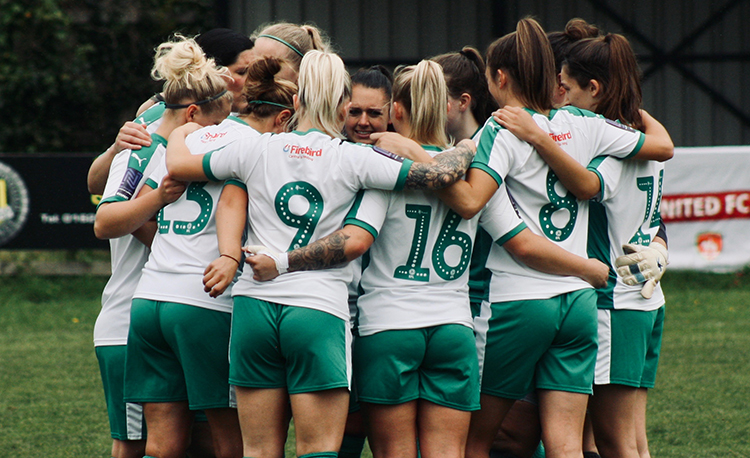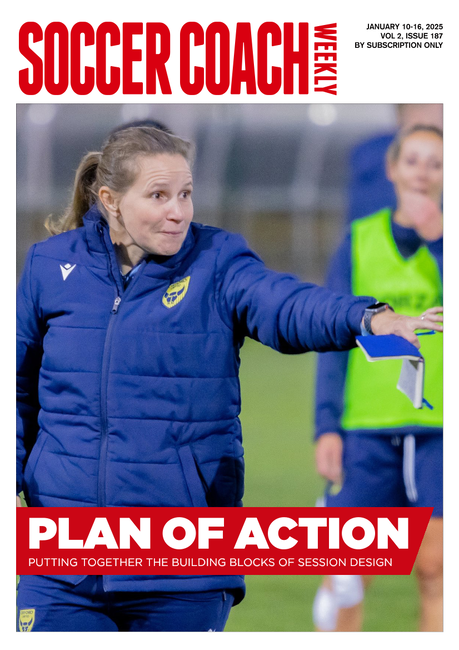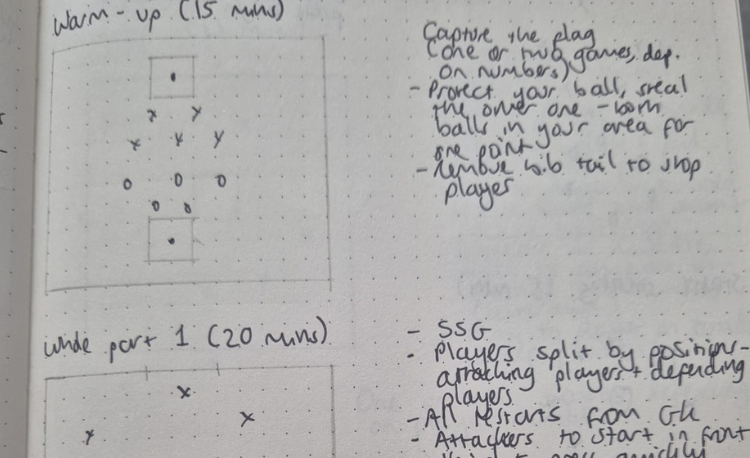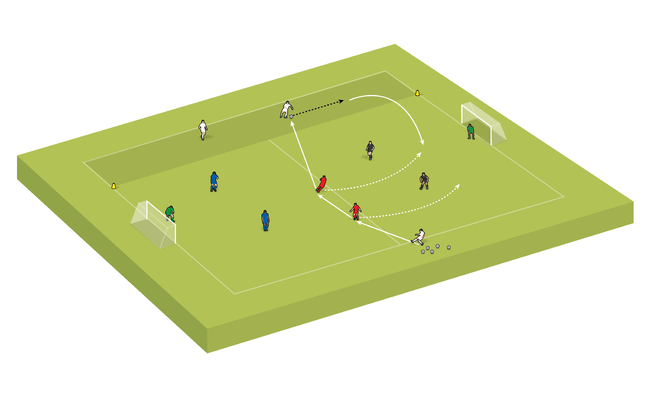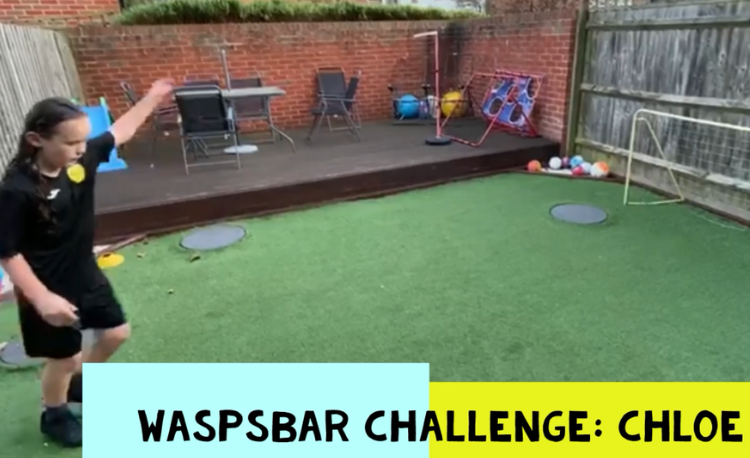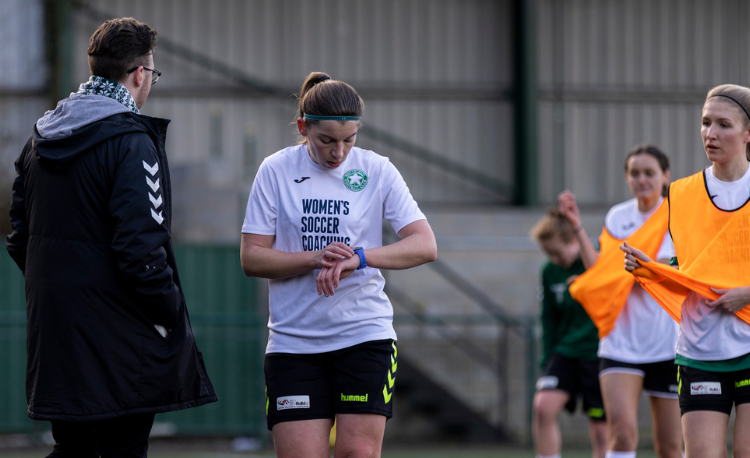JP Nerbun: What does culture mean for you?
It’s a common buzzword, but what does it mean for you? ’Culture consultant’ JP NERBUN discusses healthy team environments with SCOTT MOWBERRY
The word ’culture’ is used frequently in conversations about coaching. But what does it actually mean? How do we go about creating and maintaining a culture?
Scott Mowberry, from the Soccer Coaching Podcast, spoke about this with JP Nerbun, a culture consultant, mentor, speaker, author, and founder of TOC Culture Consulting.
Originally a college basketball player, JP cut his teeth in coaching in Limerick, Ireland.While coaching at a high school in the US, he hit rock bottom as a coach.
"The weight of coaching was exhausting," he said. "It wasn’t fulfilling, the relationships struggled, my culture struggled."
JP now works with coaches across various sports to make sure this doesn’t happen to them, He shares some of his tips with Scott...
SM: What are we talking about in your terms when you’re talking about a team culture?
JPN: "We look at two main things. We like to measure culture by the strength of the relationships. How connected are people? Are they connected around a common goal? Do they feel safe? Is there trust?
"The other thing would be the standards, the behaviors. Not the things you say on the wall, like ’love’, ’toughness’ or whatever. But how do you actually do things? How do you do things when the leader isn’t there?
"How do you do things when stuff goes bad? When you go down three goals in the first half, how do you respond as a team on the pitch? How do you show up?
“Who’s driving that - Is it just the leader? Is it the head coach and captain? Great teams need to have strong relationships and high standards - but to drive that, and to go really far with that, you need more of a player-led approach. It can’t be just you.
“I was talking with Sean Fitzpatrick, the former New Zealand rugby captain, and he said in the best teams he captained, there was a group of them that drove the culture."
SM: You speak about transformational leadership. Can you tell us a bit more about how that looks, and how a grassroots volunteer coach might be able to use some of the techniques to look at themselves?
JPN: "You’re really just trying to talk about why you coach. What does success look like for you? What’s the vision for your team? Have a clear picture of that and maybe a few ways you might measure that.
“It’s deciding what’s really important - who are you as an individual, your values.But that’s a hard thing to do. It’s not something you figure out over a morning coffee.
"How do you do things when stuff goes bad? How do you respond as a team on the pitch...?"
“If you want to be a transformational leader, find things you can do to reflect on your coaching and to continuously fill your head with things that will stretch you, challenge you, and help you move towards those things you say are really important.
"The great coaches, the great leaders, are very introspective. They take time, they have these disciplines in their life to grow.
"They don’t spend their days just scrolling Twitter for the latest drill. They’re deep in learning about new things, new ways to approach things, better ways of doing things. That growth mindset is at the core of it.
“You may not have a mission statement, you may not have core values, but at least identify a couple of things you can do to start slowly growing as a coach."
SM: Would you suggest that, as coaches, we focus on the process rather than the outcomes?
JPN: "One of the things I encourage coaches to do is to find measures of success.
"Society measures success on achievement, ability and acknowledgement. How many games have you won? Did you win the championship? For a player, what’s his ability? And acknowledgement - ’that guy’s got lots of followers, he’s got a lot of respect, people talk about him’. That’s what society tells us is success.
“I try to think about a vision for a team. What are your new measures of success? It comes down to the experience. What they will remember is a big component of that. Secondly, who are they becoming through that process?
"Those are two really important measures we should have clear in our head. What are they going to remember? Who are they becoming? My third thing [is] how do you want it to feel for you and your players?
"Those are the things I would focus around in our process - what does it feel like? What will they remember? And who are they becoming?"
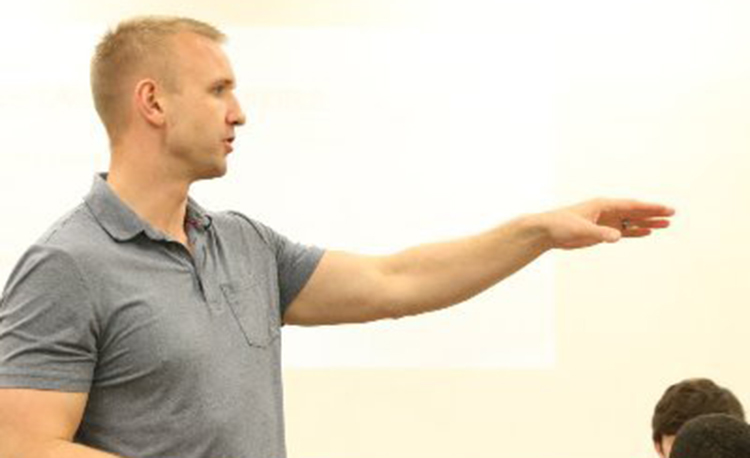
SM: What are some of the things that get in the way of this sometimes?
JPN: "Pressure is definitely one. But I’d say most of us - even coaches I work with whose job is dependent upon an outcome - would say, ’the most pressure I have comes from myself, my own desire to achieve’.
“This is why it’s so important to have a philosophy, have a vision, these measures of success, and to share that with your players, the parents and the club you coach with.
"’This is what’s really important to me’ - be really clear about that. That way, people are more likely to hold you to it, honestly.
"It’s [then] about finding a few other coaches to go on this journey with, to have good dialogues with, to grab coffee with once a week or once a month. Just ensure you have people around you that can say ’Hey, how are you doing on these things?’.
“Use some Google Forms surveys with your players to measure it. If you say you want them to have the best experience they’ve ever had, or your vision is for a place everyone wants to be a part of, measure that.
"Ask the players, the parents, what do they perceive? How do they feel about it? Ask them: ’What does it feel like to play for me?’. Those questions can be really powerful."
SM: How do you establish a team culture?
JPN: "There’s loads of ways. Think of the first day a kid walks onto the field. Ask one of your veteran players, "Hey, Johnny’s joined the team today, what can you do to make it great for him?’. Partner them up.
“That first day, don’t just focus on the drills you want to do, but carve out 10 minutes to play a game, ask some questions and [let the] guys share about themselves.
"Just get people talking. You may have 60 minutes for practice, but just taking the first five to 10 minutes to allow that is huge.
"Secondly, I would say, are the one-on-one conversations you have with players.
"At the older levels, we have player development plans, where coaches sit down and have 15-minute coaching conversations, where we help players identify their goals, share where they think they’re at, we share where they’re at and identify some commitments to close the gap from where they are to where they want to go.
"What does it feel like? What are they going to remember? Who are they becoming?
“You’re showing you’re invested in them as a player, but also in them as a person, asking about their family and stuff like that.
"Connecting with them as a person would be another big thing, when it comes to establishing the culture from the relationship side.
“When it comes to team standards, I’ll give you two simple ways to do this.
"One is to have three non-negotiables as a coach. Think about what’s most important for you to be successful.
"I need players to be on time, I need them to listen, and complaining really irritates me. Those are my three non-negotiables. So I communicate those and enforce them through the entire year.
“The other thing, if you have time and the budget, is you can get some pizza and say, ’Hey, guys, let’s identify a goal or some sort of vision.
"’What do we want this experience to be like? What does success looks like for us this year? If we really came together, what can we achieve together?’. And then say, ’Okay, what are the three, four or five most important things that we do as a group to achieve that?’.
“You set out some team standards that you can then come back to every practice and every game and hold them to.
"You establish the relationships, but you’re also establishing the standards really early on.”
Related Files
Newsletter Sign Up
Coaches Testimonials

Gerald Kearney, Downtown Las Vegas Soccer Club

Paul Butler, Florida, USA

Rick Shields, Springboro, USA

Tony Green, Pierrefonds Titans, Quebec, Canada
Subscribe Today
Discover the simple way to become a more effective, more successful soccer coach
In a recent survey 89% of subscribers said Soccer Coach Weekly makes them more confident, 91% said Soccer Coach Weekly makes them a more effective coach and 93% said Soccer Coach Weekly makes them more inspired.
*includes 3 coaching manuals
Get Weekly Inspiration
All the latest techniques and approaches
Soccer Coach Weekly offers proven and easy to use soccer drills, coaching sessions, practice plans, small-sided games, warm-ups, training tips and advice.
We've been at the cutting edge of soccer coaching since we launched in 2007, creating resources for the grassroots youth coach, following best practice from around the world and insights from the professional game.
